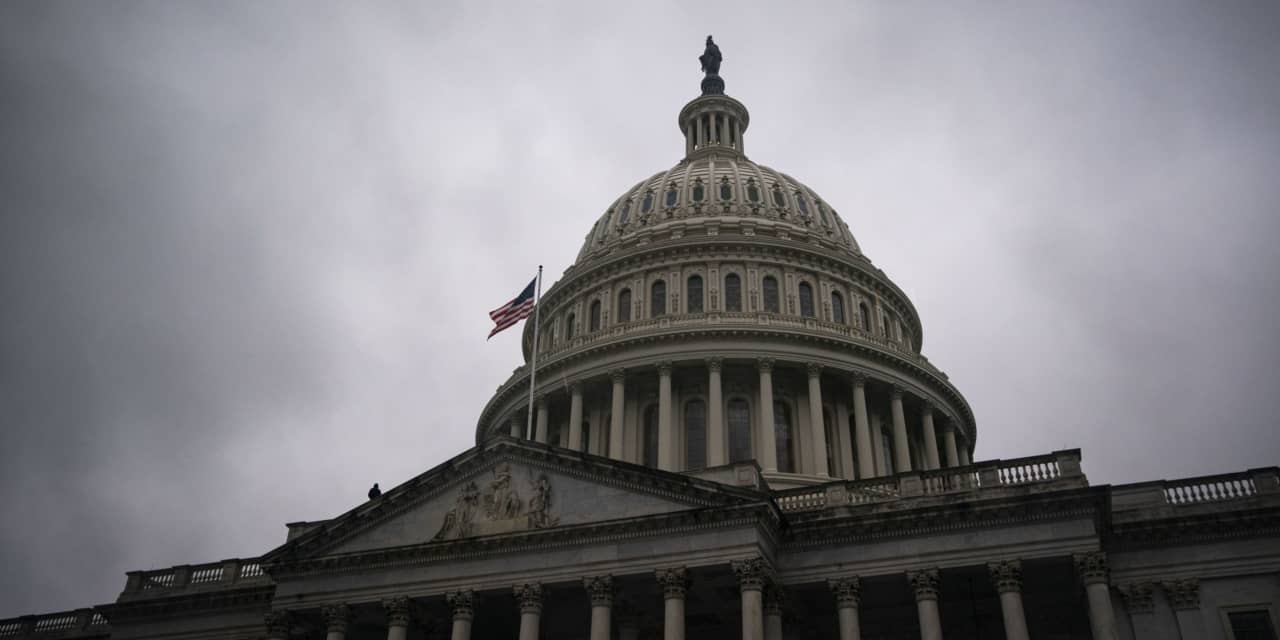The Senate and House approved a temporary government funding extension into March, racing to prevent a partial federal government shutdown.
The Senate vote was 77-18 on the extension, known as a continuing resolution. House lawmakers voted 314-108 to approve it. The bill goes to President Joe Biden’s office for his signature before the deadline of midnight at the end of Friday.
Lawmakers quickly passed the continuing resolution despite resistance from some conservatives. House voting was canceled on Friday because Washington is expecting snow, adding an extra element of drama to the hasty vote timeline. Speaker Mike Johnson relied on Democrats’ support after more than 100 Republicans voted no.
The continuing resolution extends the current Jan. 19 and Feb. 2 deadlines and keep funding at current levels until March 1 and 8.
The measure gives members of Congress more time to pass an overall $1.66 trillion spending agreement to fund the government through Sept. 30.
“The Senate has just passed the bill to fund the government and avoid an unnecessary shutdown,” Senate Majority Leader Chuck Schumer (D., N.Y.) said on X, formerly Twitter. “It’s good news for every American, especially our veterans, parents and children, farmers and small businesses, all of whom would have felt the sting of a shutdown.”
Schumer said his next priority after averting a shutdown will be for the Senate to move on to the national security supplemental funding bill, which Biden requested for aid to Ukraine, Israel, and other priorities.
Schumer and Johnson (R., La.) reached agreement earlier this month on a $1.66 trillion spending plan for 2024, which cuts $20 billion from the Internal Revenue Service budget and repurposes $6.1 billion in unspent Covid-19 relief funds.
Some far-right House Republicans were angry that Johnson made that deal with Schumer, which sticks to funding levels agreed to by former Speaker Kevin McCarthy and the Biden administration last year.
Reps. Chip Roy (R, Texas) and Marjorie Taylor Greene (R, Ga.) have raised the idea of ousting Johnson as speaker if he doesn’t align with them on spending and immigration issues, the Washington Post reported.
House Freedom Caucus members on Thursday tried to get an amendment vote to attach a border-security bill to the continuing resolution, but Johnson’s office blocked it, The Wall Street Journal reported.
Republicans and Democrats disagreed over a range of policies. Republicans have pushed for what Johnson calls “transformative policy change” to secure the southern U.S. border, saying it should be a priority over approving additional military aid for Ukraine.
Biden said Wednesday that failing to give Ukraine what it needs to defend itself from Russia’s Vladimir Putin’s “brutal invasion,” including air defense and artillery capabilities, “endangers the United States’ national security, the NATO Alliance, and the rest of the free world.”
Biden also said Congress must act now to address the challenges at the border and “expressed his commitment to reaching a bipartisan agreement on border policy and the need for additional resources at the border,” the White House said.
On Thursday, Biden said that the vast majority of Congress’ members support aid to Ukraine, but that “the question is whether or not a small minority are going to hold it up, which would be a disaster.”
Write to Janet H. Cho at [email protected]
Read the full article here




